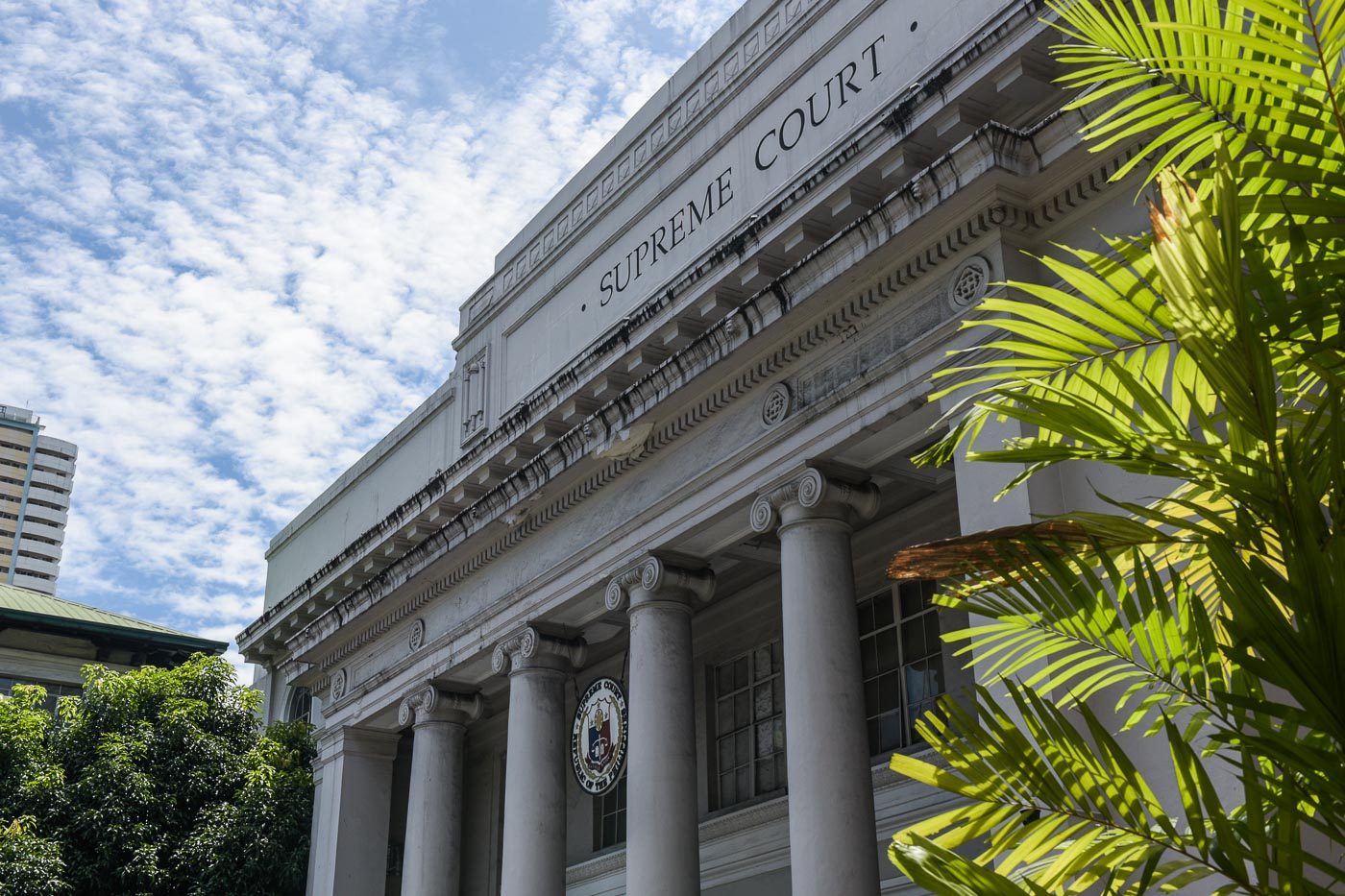SUMMARY
This is AI generated summarization, which may have errors. For context, always refer to the full article.

MANILA, Philippines – The Bangsamoro Organic Law got the backing of another group as Moro civic leaders on Tuesday, January 8, filed a comment-in-intervention before the Supreme Court to support the government in petitions seeking to invalidate the BOL.
Lawyers Algamar Latiph and Musa Malayang, and former youth commissioner Pendatun Disimban submitted their position paper on why the BOL should be upheld to the High Court on Tuesday, two weeks before the scheduled plebiscite on January 21.
A comment-in-intervention is a pleading an outside party files to defend the position of the respondent. The Moro leaders are defending the stance of the government in the petition filed by Sulu Governor Abdusakur Tan II against the BOL
It is the second of its kind, after Commissioner Manny Luna of the Presidential Anti-Corruption Commission represented the Philippine Association of Islamic Accountants in filing a similar intervention in support of the government on Monday, January 7. (READ: 6 scenarios for the Bangsamoro vote)
Tan’s petition against the BOL argues that the law violates the 1987 Constitution because:
- It replaces the Autonomous Region in Muslim Mindanao (ARMM) which was required by the 1987 Constitution
- It violates Article X, Sections 15 and 18 of the Constitution which states that “only provinces, cities, and geographic areas voting favorably in such plebiscite shall be included in the autonomous region.” Under the BOL, the vote of the entire ARMM shall be counted as one.
- The parliamentary form of the Bangsamoro government under the BOL violates the constitutional guarantee that the executive and legislative branches shall work as separate entities and serve as checks and balances of each other.
The civic leaders’ comment argues that the SC should not even entertain Tan’s petition, pursuant to a previous decision that the “Court should avoid ruling on constitutional questions and to presume that there acts of the political departments are valid in the absence of a clear and unmistakable showing to the contrary.”
On whether the BOL can be passed despite the existence of the ARMM, the intervenors said the Constitution “did not impose any statutory limitation on the Congress in legislating an Organic Act nor amending or repealing such legislation.”
The civic leaders also pointed out that the Constitution gave Congress the power “to define the basic structure of government for the region consisting of the executive department and legislative assembly.” For them, Congress has the discretion to pass a law that would create a parliamentary form of government for the autonomous region.
“For us to address the root causes of the Mindanao problem, we have to help and reinforce and strengthen the political and legal foundation of a just and lasting peace in Mindanao and the affirmation of the BOL is way forward towards that goal,” the intervenors said.
The BOL plebiscite will take place on January 21 and February 6.
Before then, the High Court has two more en banc sessions – on January 8 and 15. – Rappler.com
Add a comment
How does this make you feel?
There are no comments yet. Add your comment to start the conversation.